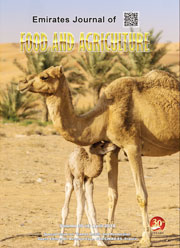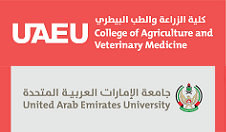The effect of ripeness phases on seed and fruit quality of eggplant (Solanum melongena L.)
DOI:
https://doi.org/10.9755/ejfa.2022.v34.i2.2818Abstract
A three-year experiment was conducted to determine the influence of ripening, variety and the production year (2017-2019) on seed
and fruit quality of eggplant. The 1000 seed weight, germination capacity, the total protein and oil content of seeds as well as the total
protein and sugar content of fruits were determined in three ripeness phases across three production years. All examined varieties exhibited
significant differences in the weight of 1000 seeds during ripening, which varied from 1.44 to 4.42 g. Seeds extracted from fruits that
reached commercial ripeness did not germinate. As the fruit ripens, its total sugar and protein content decreases, while the reverse is
detected in the case of total protein and oil content of seeds. The full ripeness phase was the optimal time for harvesting fruits to obtain
high germinating seeds.










 .
. 